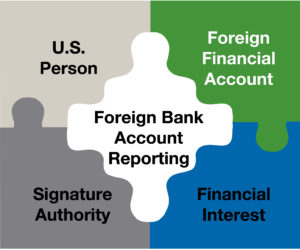Prosecutors announced Jan. 20 that a Connecticut business executive has pleaded guilty to willfully failing to report offshore bank accounts to the IRS.
 As part of his plea, which was entered Jan. 16 2015 before Magistrate Judge Debra Freeman of the U.S. District Court for the Southern District of New York, George Landegger of Ridgefield, Conn., agreed to pay a civil penalty of more than $4.2 million and more than $71,000 in back taxes.
As part of his plea, which was entered Jan. 16 2015 before Magistrate Judge Debra Freeman of the U.S. District Court for the Southern District of New York, George Landegger of Ridgefield, Conn., agreed to pay a civil penalty of more than $4.2 million and more than $71,000 in back taxes.
According to the charges in a criminal information, Landegger maintained undeclared accounts at an unidentified Swiss bank based in Zurich from at least the early 2000s until 2010. His undeclared assets reached a high value of over $8.4 million in that period.
If you have a financial interest in or signature authority over a foreign financial account, including a bank account, brokerage account, mutual fund, trust, or other type of foreign financial account, exceeding certain thresholds, the Bank Secrecy Act may require you to report the account yearly to the Department of Treasury by electronically filing a Financial Crimes Enforcement Network (FinCEN) 114, Report of Foreign Bank and Financial Accounts (FBAR).
According to prosecutors, a representative of the Swiss bank referred Landegger to a Zurich-based attorney, Edgar Paltzer, to form a sham entity to hold his undeclared accounts. In April 2009, Landegger met with the bank representative and another individual to discuss the future of his undeclared accounts in light of the news about a U.S. investigation into hidden accounts at another Swiss bank, UBS AG, according to the charges.
At the meeting, prosecutors said, Landegger affirmatively rejected the possibility of disclosing his undeclared accounts to the IRS through its Offshore Voluntary Disclosure Program or otherwise. Instead, he shifted the assets out of Switzerland into a new, declared account in Canada and an account kept by another person in Hong Kong.
“The benefits of citizenship or residency in the United States come with certain obligations, including, as George Landegger well knew, the legal requirement to report foreign bank accounts,” U.S. Attorney Preet Bharara said. “He will now pay for his illegal conduct.”

 Failure to file
Failure to file 
